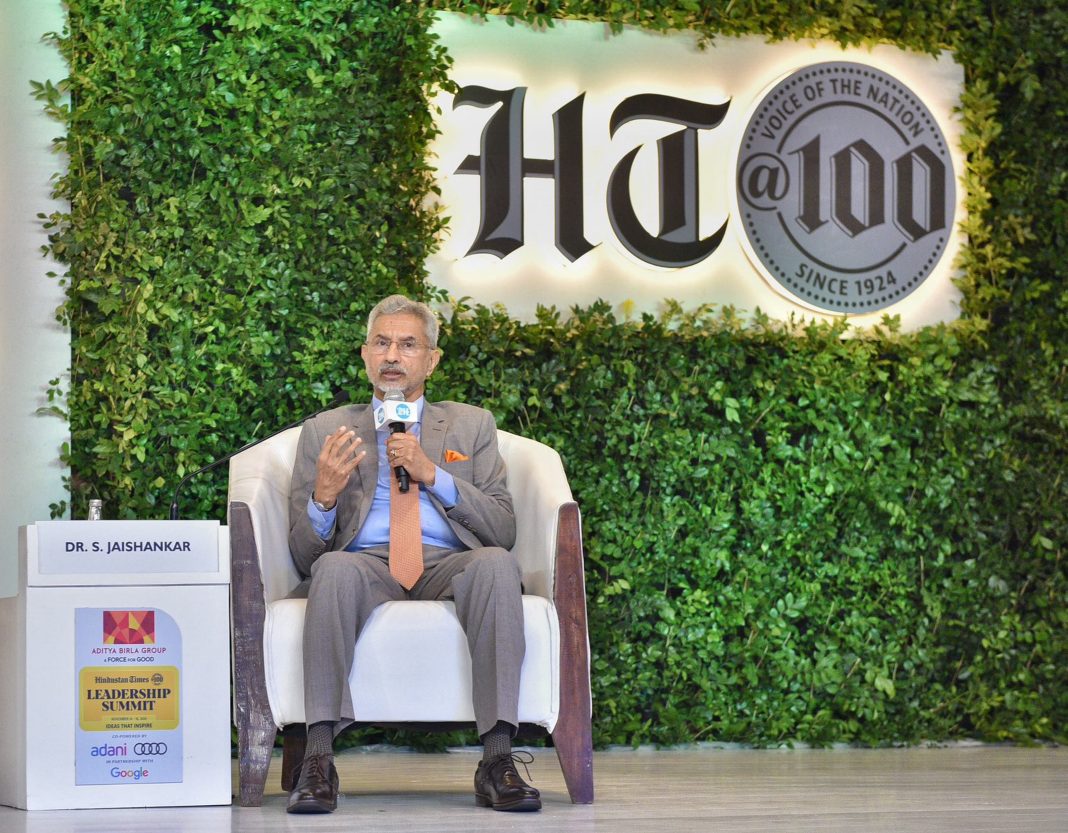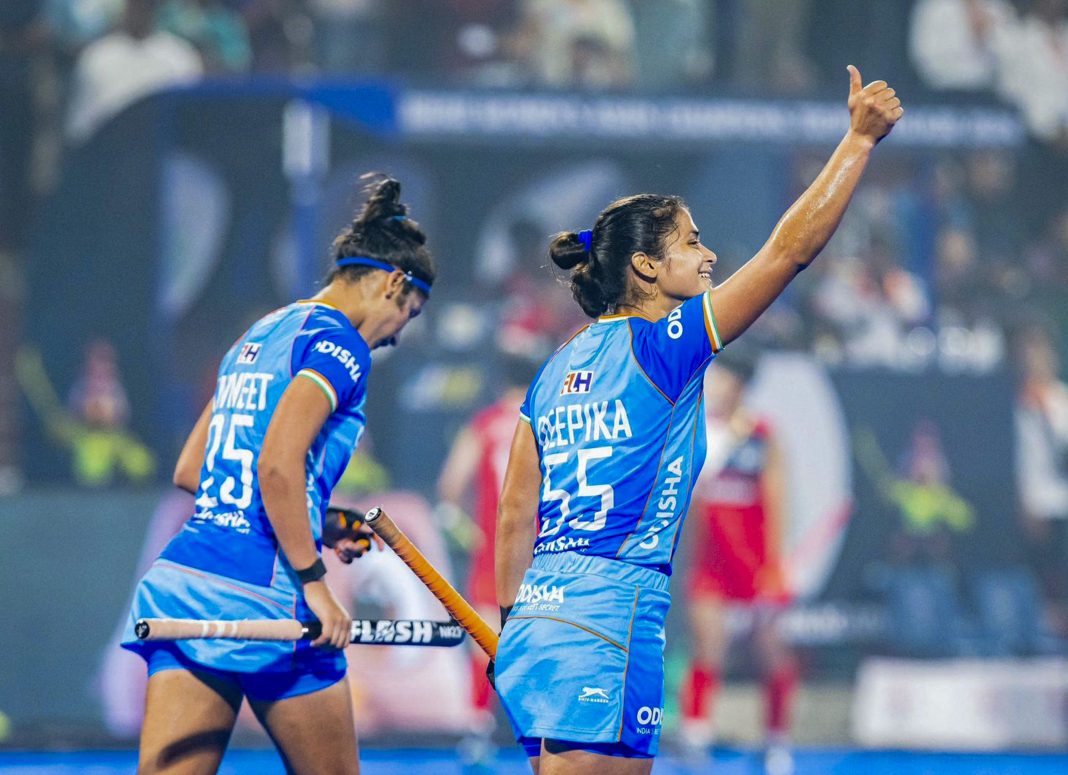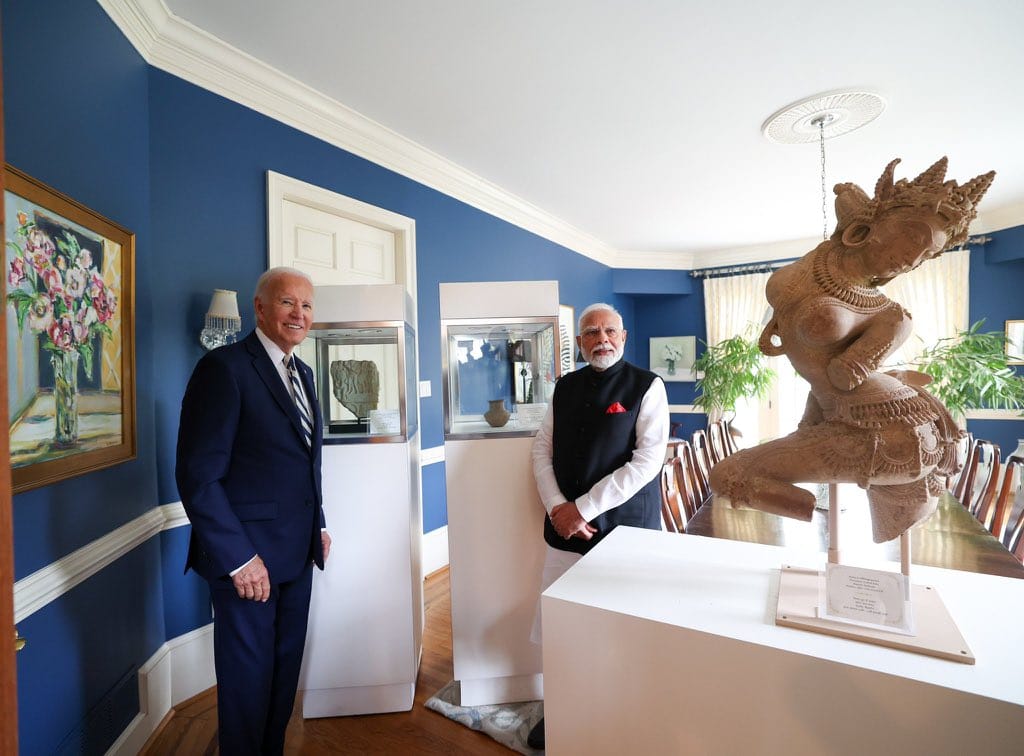New Delhi, Nov 16: The disengagement part of the “problem” with China along the Line of Actual Control (LAC) in eastern Ladakh has been put at rest and the focus should now be on de-escalation, External Affairs Minister S Jaishankar said on Saturday.
Jaishankar said it is “reasonable” to expect some improvement in the relations between India and China following the final round of disengagement but hesitated to say that there could be a reset of the ties.
“I see disengagement as disengagement; nothing more, nothing less. If you look at our current situation with China, we have an issue where our troops are uncomfortably close along the Line of Actual Control (LAC) which required us to disengage,” he said at the HT Leadership Summit.
The understanding between India and China on October 21 was the last of the disengagement agreements, Jaishankar said.
“So that with its implementation, the disengagement part of the problem is at rest,” he said.
Jaishankar’s remarks came in response to a question on whether the disengagement of troops by the two sides last month was the beginning of a reset of the Sino-Indian ties.
The external affairs minister said the current situation of the relationship does not warrant such a conclusion.
Indian and Chinese militaries completed the disengagement exercise in Demchok and Depsang in eastern Ladakh along the LAC last month after the two sides reached an agreement to resolve the festering border row.
The two sides also resumed patrolling activities in the two areas after a gap of almost four-and-a-half years.
In his remarks, Jaishankar said de-escalation should be the next step following the completion of the disengagement process.
“Where the disengagement will lead us, it is a reasonable supposition that there will be some improvement in the ties,” he said.
On the overall India-China ties, Jaishankar delved into various factors and said it is a “complicated” relationship.
To another question on whether the economic and security wings of the government have divergent views on China as this year’s Economic Survey appeared to pitch for greater economic engagement with the neighbouring country, Jaishankar said there could be different points of view but overall relationship is guided by a policy decision.
“I think an accurate way of looking at it is that in every government, different ministries have different responsibilities, and flowing from that responsibility, they have a point of view,” he said.
“You referred to an Economic Survey. In effect, there would be a national security survey which you may not see in public, which would have a national security point of view,” he said.
Jaishankar said the external affairs ministry is an integrator of all points of views and takes an overall balanced approach.
“If somebody has a point of view, then we look at that point of view. We don’t say you can’t have that point of view, but a point of view at the end of the day is not a policy decision,” he said.
To a separate question, the external affairs minister said the world is looking at India’s political stability, especially at a time when most countries in the world are facing political instability.
“At such a time, being elected three times in a row in a democracy is not an ordinary thing,” he said about the result of the parliamentary election this year.
On Republican leader Donald Trump’s victory in the US presidential election, Jaishankar said it reflected a lot about the US.
“This US election tells us a lot about America. It tells us that many of the concerns and priorities that won Donald Trump a first term have become more intense, not gone away,” he said.
The external affairs minister also said he does not think that the US would turn its back on the world.
“If you are the number one power, you have to remain engaged with the world, but the terms you are offering to the world are going to be different from the terms which were there,” he said.
The external affairs minister said ambitious projects like the India-US initiative on Critical and Emerging Technologies (iCET) are unlikely to be impacted under the new government in Washington.
“I think we are going to see that as a structural trend and, my own sense is, if President Trump is determined to make America more competitive and brings to it a strong element of business viability, I think such an America will actually look for partners with whom it can work in a complementary fashion,” he said. (PTI)




